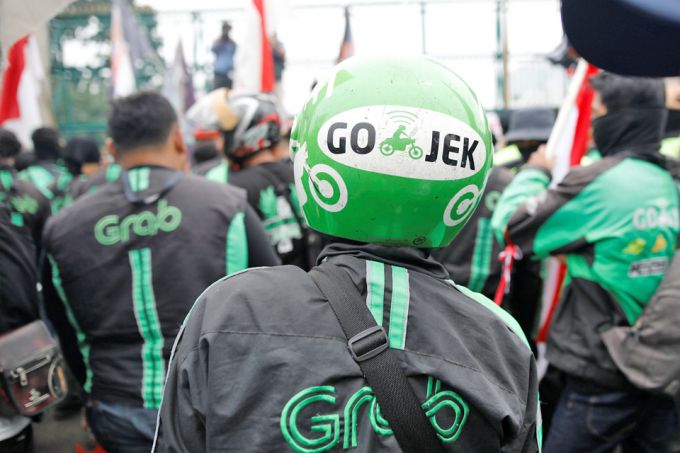Grab, Go-Jek biggest winners in S-E Asia’s e-payment war: Morgan Stanley report
INDEPENDENT e-payment players such as Grab and Go-Jek will be the biggest winners in the South-east Asian e-payment market, going by a latest Morgan Stanley report. This is followed by banks, consumers and telcos, said the report titled Disruption Decoded: Who will win in e-payments – banks, independents or telcos?.
Banks will lose between US$13.1 billion and US$15.5 billion in value to non-bank operators by 2022, with independents gaining the bulk of this value (US$6.4 billion to US$9.3 billion), and telcos gaining a smaller sum of it (US$2 billion to US$2.9 billion). Consumers will gain the balance of this value transfer via lower transaction fees, the report found.
“Banks will be able to recover US$20 billion to US$24 billion of value in cost savings from the digitisation of payments, making them net winners. However, gains and losses will fall unevenly. Singapore’s banks could gain enough and Indonesian banks could lose enough that return on equity could be similar between the two groups, or even higher for Singapore’s banks.”
The opening up of the Asean payments market creates a potentially existential challenge for banks, and huge opportunities for new non-bank entrants, said the report. “This is not just about the money that can be made from processing payments. It’s also about payments as a gateway to deposits and other financial products, transferring value away from banks and towards non-banks.”
In Singapore, ride-hailing firm Grab has been labelled a “winner” and “well-positioned” to lead the e-payment space with its mobile wallet GrabPay. But banks – in particular DBS and OCBC – have emerged the “biggest winner”, benefiting from cost gains that will outweigh revenue losses.
Telcos are in a “neutral” position, with Singtel being the “best positioned but too small to drive valuation”. Losers in Singapore include merchants (which will likely incur higher payment fees), as well as money remittances and future bank employees, the report said.
In Indonesia, ride-hailing firm Go-Jek (which runs mobile wallet GoPay) and other independents have been found to be the “biggest winner”. TLKM, a telco, has been tipped to be a “small winner”, while banks such as Mandiri and BRI have been identified as losers, as their revenue losses will be “far greater” than their cost out opportunity.
How regulators react will be key to the e-payment landscape in the region. “Disruption usually takes the form of an S-curve, where rapid consumer adoption of a product means that incumbents are often slow to react. Regulation of the e-payment market will be key in Asean to see whether an S-curve can form.”
The Monetary Authority of Singapore, Bank of Thailand and Bank Negara Malaysia have quickly moved to create a level-playing field for payments, a move that is likely to benefit incumbents in the longer term by reducing the chance of an S-curve forming, the report found.
Bangko Sentral ng Pilipinas, Bank Indonesia and Indonesia’s Financial Service Authority have moved more slowly, and have a greater need to balance the opportunity for increased financial inclusion, said the report.
“Fragmentation of the payments network here may well help banks preserve income in the medium term, but also makes it more likely that new entrants will be able to step in and exploit system inefficiencies, establishing a disruptive S-curve adoption cycle.”
In China, where financial infrastructure was less developed, market share shifted from the banks to new entrants, which were mainly Alipay and Tenpay, both of which received high levels of cross-subsidisation from their parent companies over a long period of time, said the report.
In the European Union and the US, where financial infrastructure is more developed, incumbents have not been disrupted in the same way, the report added.
There is a lower chance of disruption in the more developed markets of Singapore, Malaysia and Thailand, given that regulatory intervention will ensure early adoption of real-time transfers, Morgan Stanley predicted. Singapore was in fact one of the first countries in the world to roll out real-time transfers in 2014, going by the report.
“In the Philippines and Indonesia, we see more chance of disruption. Financial infrastructure is less well-developed there, regulatory response has been slower and regulators are also having to balance the opportunity for greater financial inclusion.”
In addition, banks charge more for “simple transactions”, which provides greater opportunity for non-bank players such as telcos (in the Philippines) and independents (in Indonesia), said the report.
Source: https://www.businesstimes.com.sg/startups/grab-go-jek-biggest-winners-in-s-e-asias-e-payment-war-morgan-stanley-report


 English
English




